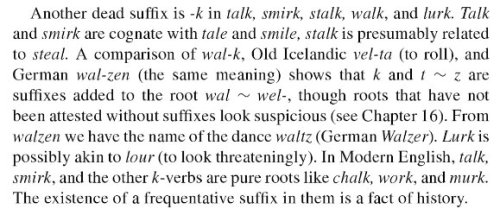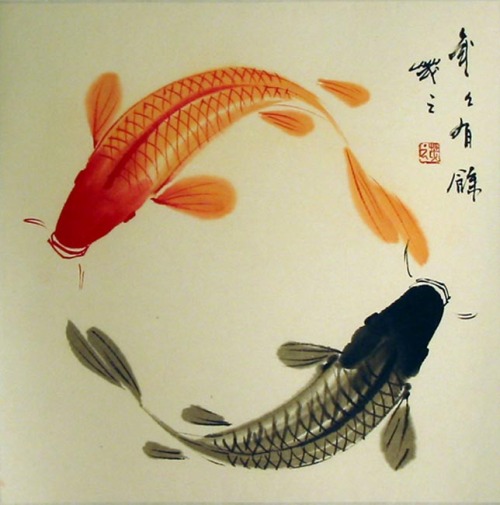★ leg(s) In Japanese Is 脚 (あし – Ashi). ★ foot/feet In Japanese Is Also Pronounced あし

★ leg(s) in Japanese is 脚 (あし – ashi). ★ foot/feet in Japanese is also pronounced あし (ashi) but the kanji is different: 足 \(◕ω◕)/☆ ……………………………………………………………………………….. Learn more Body Parts: http://www.punipunijapan.com/body-parts-japanese/ Face kao 顔(かお) Cheek(s) hoppeta ほっぺた Forehead odeko おでこ Teeth ha 歯(は) Tongue shita 舌(した) Lips kuchibiru 唇(くちびる) Hair (on head) kami 髪(かみ) Neck kubi 首(くび) Throat nodo 喉(のど) shoulder(s) kata 肩(かた) elbow(s) hiji 肘(ひじ) wrist(s) tekubi 手首(てくび) back senaka 背中(せなか) hips/lower back koshi 腰(こし) knee(s) hiza 膝(ひざ) ankle(s) ashikubi 足首(あしくび) finger(s) yubi 指(ゆび) toe(s) tsumasaki 爪先(つまさき) ………………………………………………………………………………. Click here to learn more! http://www.punipunijapan.com/body-parts-japanese/
More Posts from Earthquakedeer and Others
気 Expressions
気 (き/ki) is a word that means “spirit” or “mood,” but it is used in many different expressions. Here are some of the expressions:
気に入り (ki ni iri) = favorite
気に入る (ki ni iru) = to be pleased with
気にする (ki ni suru) = to mind, worry, care about
気にするな!(ki ni suru na) = Don’t worry about it!
気に掛ける (ki ni kakeru) = to way on one’s mind, to trouble one’s heart
気になる (ki ni naru) = to worry, be anxious, uneasy
気に障る (ki ni sawaru) = to offend
気に座る (ki ni suwaru) = to hurt one’s feelings
気に留める (ki ni tomeru) = to heep in mind, give heed to, pay attention to
気を付ける (ki wo tsukeru) = to be careful, take care
気をつかう (ki wo tsukau) = to pay attention to another’s needs
気を悪くする (ki wo waruku suru) = to take offense at, feel hurt
気を許す (ki wo yurusu) = to let one’s guard down
気を散らす (ki wo chirasu) = to distract a person’s attention
気を取られる (ki wo torareru) = to have one’s attention caught, to be preoccupied with
気を静める (ki wo shizumeru) = to calm feelings, compose oneself
気を配る (ki wo kubaru) = to pay attentnion, be watchful
As you can see, these expressions that use 気 often have to do with one’s feelings or mood (and many of them are very similar). So, I’ll say to everyone today:
みんな、気を付けてください!
Everyone, take care!
Reading in your target language just got so much easier

This cool little website, called readlang, allows you to upload your book, in your target language, from epub form into their website, right? And you just read your book from there. When you don’t know a word, what do you do? Do you go to google dot com and type in that word? Nope. You fucking click it. And it tells you the word.
I am currently reading the 100 (this is the book that the tv show came from) and I can already tell reading this way is so much easier. I highly suggest making an account. It’s free, and works for more than 80 languages!
Japanese Vocab 10月28日

問題 (もんだい) question, problem
この問題用紙は、全部で31ページあります。
This question booklet has 31 pages.
聞く (きく) to ask
先生に聞きましょう
Let’s ask our teacher.
Keep reading
In Japanese we don’t say “I’m just going to stay home tonight” we say “今夜は家でゴロゴロしてる (konya wa ie de gorogoro shiteru)” meaning “Tonight I’m just going to roll around at home” and … #same
Submitted by anonymous








GENKI I: LESSON 3 NOTES
whoo. this lesson was long and hard. it took me around 12 hours over 4 days. most of the time was spent in the grammar section trying to understand all the particles that were thrown at you this lesson. nevertheless, i persevered and finished the workbook a few hours ago. this lesson also started giving kanji, which added extra time. i really love using jisho.org to look up kanji meanings and the stroke order. the interface is very nice and i highly recommend it! onward to lesson 4! how was your guys’ week?
genki lesson 3/12 countdown to JLPT N5 exam on dec. 3rd - 77 days
German da-compound words
(english to german)
1. Above that - darüber
2. Through that - dadurch
3. Around that - darum
4. Out of that - daraus
5. With that - damit
6. After that - danach
7. For that - dafür
8. From that - davon
9. Against that - dagegen
10. In that - darin
11. Under that- darunter
12. Next to that - daneben
13. Behind that - dahinter
14. On that - darauf


今日の昼食は、中華料理店で食べて、すごい美味しかったよ! Today, we ate lunch at a Chinese restaurant and it was delicious!
あと漢字の読み練習した。 After, I practiced reading kanji.
最近、日がどんどん短くなってきて、なんだかちょっと悲しいよね。 Lately, the days are getting shorter and shorter, somehow it’s a little sad.
あなたの住んでいる所は、今何時に日が暮れるか? Where you live, at what time does the sun sets?

The obsolete English -k suffix is my new favourite thing (source). It’s also the same -k that derives “hark, hearken” from “hear”.
Japanese Vocabulary : Using your phone in Japanese
[FRENCH BELOW]
This list is not complete, I will update it from time to time when I can ! Please note that I’m using a Samsung Galaxy S7 and there might be slight differences depending on the phone you have.
I will not put the terms written in katakana, as 1) you should know them 2) their meaning is usally easy to guess since most of the time they’re english words.
PS : If you’re learning French, note that there are quite a few words / expressions that are abbreviated !
PS2 : Also note that I put my phone back in English and French to get the best translations, but some words are “computer terms” so please check before using them in another context :)
I hope this will be useful :)
Cette liste n’est pas complète, je la mettrai à jour quand je pourrai! Prenez en compte le fait que j’utilise un Samsung Galaxy S7, donc il se peut qu’il y ait quelques différences avec d’autres téléphones.
Je ne mettrai pas les termes écrits en katakana : 1) vous devriez les connaître 2) si vous comprenez l’anglais leur sens est normalement simple à trouver, sinon il suffit d’aller chercher la signification (ce qui est bien plus facile que de chercher des kanjis qu’on ne connait pas…)
PS : J’ai remis mon téléphone en anglais et en français pour avoir la meilleure traduction, mais faîtes attention car certains mots sont des termes réservés à l’électronique et pourraient ne pas fonctionner dans un autre contexte !
ロックを解除(かいじょ)するには、スワイプしてください : Swipe screen to unlock / Faîtes glisser votre doigt sur l’écran pour déverrouiller.
機内(きない)モード : Airplane mode / Mode hors-ligne
省電力(しょうでんりょく) : Power saving / Eco. énergie
縦画面(たてがめん) : Portrait / Portrait
自動回転(じどうかいてん) : Auto rotate / Rotation auto.
位置情報(いちじょうほう) : Location / Position
全(すべ)て消去(しょうきょ) : Clear all / Effac. tout
通知設定(つうちせってい) : Notification setting / Param. notif.
電卓 (でんたく) : Calculator / Calculatrice
翻訳 (ほんやく) Translate / Traduction
連絡先 (れんらくさき) Contacts / Contacts
時計 (とけい) Clock / Horloge
電話 (でんわ) Phone / Téléphone
予約 (よやく) Schedule (a message) / Programmer (un message)
削除 (さくじょ) Delete / Supprimer
画像 (がぞう) Pictures / Photos
検索 (けんさく) Search / Rechercher
編集(へんしゅう) Edit / Modifier
全てを朗読(ろうどく)にする Mark all as read / Tout marquer comme lu
保護(ほご)メッセージ Locked messages / Messages verrouillés
お問(と)い合(あ)わせ Contact us / Nous contacter
履歴(りれき) Recents / Récents
作成(さくせい) Compose / Rédiger
番号 (ばんごう) Number / Numéro
入力 (にゅうりょく) Enter (a text) / Rédiger
共有 (きゅうゆう) Share / Partager
追加 (ついか) Add / Ajouter
非表示 (ひひょうじ) Hide / Masquer
貼(は)り付(つ)け Paste / Coller
作 (さく) Notes / Notes (Tumblr, Instagram…)
保存 (ほぞん) Save / Enregistrer

Koi Fish. Symbol of courage, aspiration, and advancement.
-
 friedwombatsweets liked this · 11 months ago
friedwombatsweets liked this · 11 months ago -
 touyanii liked this · 6 years ago
touyanii liked this · 6 years ago -
 wtfevenaretheseusernames liked this · 7 years ago
wtfevenaretheseusernames liked this · 7 years ago -
 rin-sources reblogged this · 7 years ago
rin-sources reblogged this · 7 years ago -
 nanashin-ji reblogged this · 7 years ago
nanashin-ji reblogged this · 7 years ago -
 ambivalent-night reblogged this · 7 years ago
ambivalent-night reblogged this · 7 years ago -
 ambivalent-night liked this · 7 years ago
ambivalent-night liked this · 7 years ago -
 jamesjang66 liked this · 7 years ago
jamesjang66 liked this · 7 years ago -
 never-ever-rest liked this · 7 years ago
never-ever-rest liked this · 7 years ago -
 epicwinsauce reblogged this · 7 years ago
epicwinsauce reblogged this · 7 years ago -
 japneselarning reblogged this · 7 years ago
japneselarning reblogged this · 7 years ago -
 nametai liked this · 7 years ago
nametai liked this · 7 years ago -
 andreeastudies-blog reblogged this · 7 years ago
andreeastudies-blog reblogged this · 7 years ago -
 mojojowan liked this · 7 years ago
mojojowan liked this · 7 years ago -
 alcormidna liked this · 7 years ago
alcormidna liked this · 7 years ago -
 figurative-satan liked this · 7 years ago
figurative-satan liked this · 7 years ago -
 dokinqs liked this · 7 years ago
dokinqs liked this · 7 years ago -
 midnightkatsuyuki liked this · 7 years ago
midnightkatsuyuki liked this · 7 years ago -
 llnoval liked this · 7 years ago
llnoval liked this · 7 years ago -
 daisukeuzumaki liked this · 7 years ago
daisukeuzumaki liked this · 7 years ago -
 necroyasha reblogged this · 7 years ago
necroyasha reblogged this · 7 years ago -
 necroyasha liked this · 7 years ago
necroyasha liked this · 7 years ago -
 rwelling14 liked this · 7 years ago
rwelling14 liked this · 7 years ago -
 dakin33 liked this · 7 years ago
dakin33 liked this · 7 years ago -
 megadesu liked this · 7 years ago
megadesu liked this · 7 years ago -
 malicesprings liked this · 7 years ago
malicesprings liked this · 7 years ago -
 ambersweethearts liked this · 7 years ago
ambersweethearts liked this · 7 years ago -
 vanoe liked this · 7 years ago
vanoe liked this · 7 years ago -
 dollfairy liked this · 7 years ago
dollfairy liked this · 7 years ago -
 cartouchebag reblogged this · 7 years ago
cartouchebag reblogged this · 7 years ago -
 modestmango liked this · 7 years ago
modestmango liked this · 7 years ago -
 xtinacarlinlangblr reblogged this · 7 years ago
xtinacarlinlangblr reblogged this · 7 years ago -
 xtinacarlin reblogged this · 7 years ago
xtinacarlin reblogged this · 7 years ago -
 asuraspartan liked this · 7 years ago
asuraspartan liked this · 7 years ago -
 benderhernandez reblogged this · 7 years ago
benderhernandez reblogged this · 7 years ago -
 benderhernandez liked this · 7 years ago
benderhernandez liked this · 7 years ago -
 puhallella liked this · 7 years ago
puhallella liked this · 7 years ago -
 ftvos-blog liked this · 7 years ago
ftvos-blog liked this · 7 years ago -
 mimosa-esplosa liked this · 7 years ago
mimosa-esplosa liked this · 7 years ago -
 kyokathefandomhuntress reblogged this · 7 years ago
kyokathefandomhuntress reblogged this · 7 years ago -
 a-sinful-child-blog liked this · 7 years ago
a-sinful-child-blog liked this · 7 years ago
Just a person learning Japanese. Self-learner. If you're also studying Japanese and want to practice with someone (and you're also very much a beginner) then message me! はじめまして! さびーなです。よとしく!
196 posts